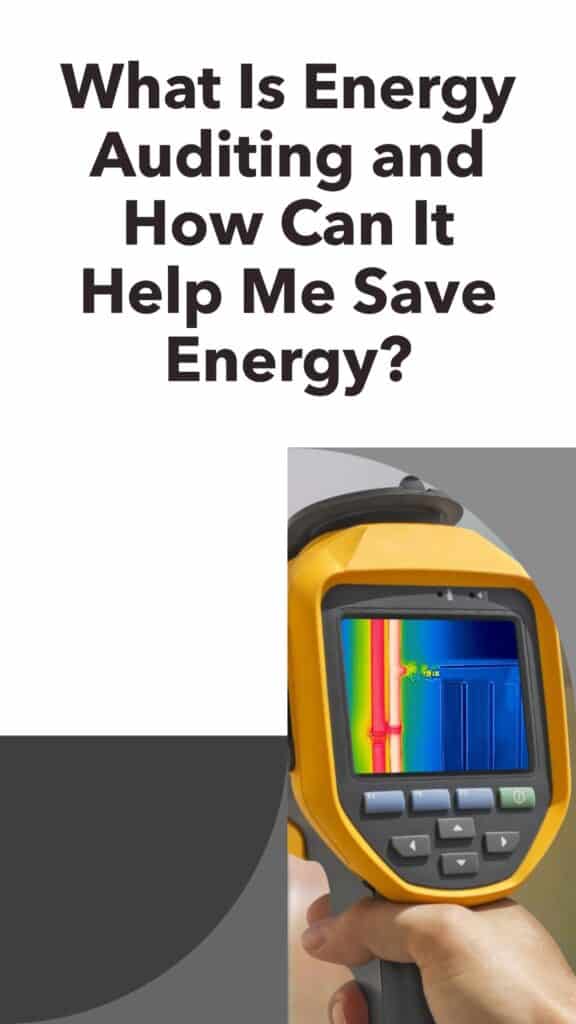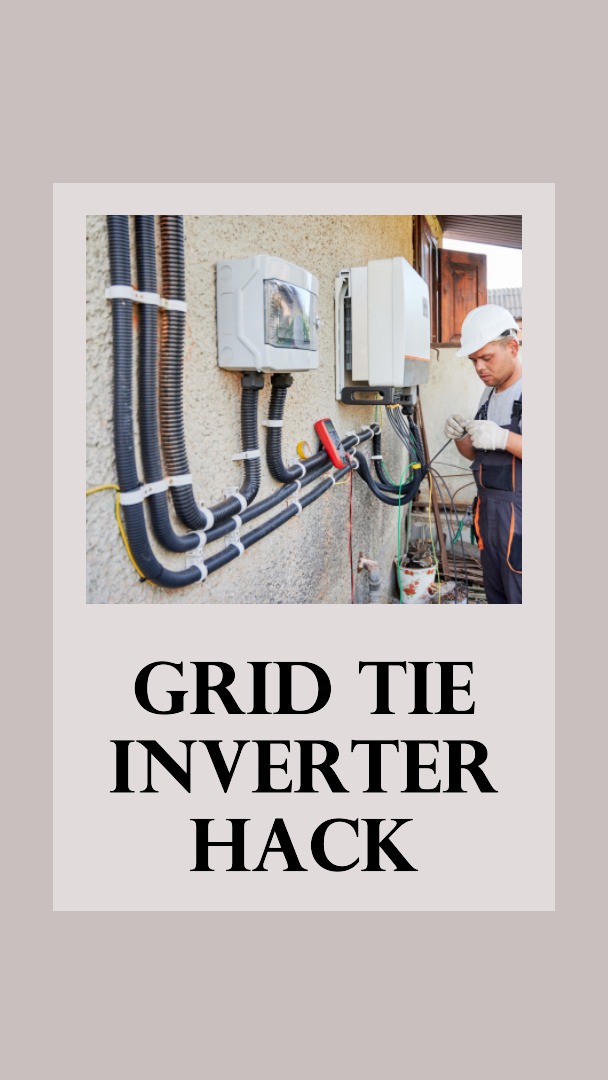Did you ever ponder over your energy bills and think, “There’s got to be a way to cut this down!” Well, guess what? There’s not just a way, but a whole science behind it! Welcome to the enlightening realm of energy auditing. But hold on a minute, what is energy auditing, and how can it help me save energy?
Energy auditing is the systematic evaluation of energy use within a building, aimed at identifying inefficiencies and recommending improvements to save energy.
To answer that burning question, we’ll take you on a journey into the heart of energy consumption, revealing how energy auditing can help reduce your energy bills and contribute to a greener planet.
What Is Energy Auditing and How Can It Help Me Save Energy?

The ABCs of Energy Auditing
Energy auditing is the practice of scrutinizing how energy is used in a building, identifying areas where energy is wasted, and recommending strategies to optimize energy usage.
It’s like a doctor’s check-up but for your home or business energy consumption.
The auditor, akin to a detective, tracks down the energy hogs and prescribes ways to enhance energy efficiency.
The Art and Science Behind Energy Auditing
But it’s not all technical jargon and scientific data.
Energy auditing is also an art that calls for a keen eye for details, an understanding of the building’s occupants’ behavior, and a grasp of the existing energy policies.
The Energy Audit Process: A Step-by-Step Guide
Conducting an energy audit typically follows a systematic process:
- The auditor first collects information about the building’s energy use and costs.
- A physical inspection of the building follows, where the auditor checks for leaks, insulation, heating and cooling systems, lighting, and appliances.
- They then analyze the data to identify energy wastage areas.
- Finally, the auditor provides a comprehensive report detailing energy-saving measures, costs, and benefits.
Energy Auditing: Beyond the Check-up
So you’ve had the energy audit, now what?
The audit itself isn’t the magic bullet that cuts down your bills. It’s the actions you take following the audit that can make a significant difference.
This may include retrofitting your home or business with energy-efficient appliances, implementing behavior changes, or even making larger structural adjustments.
The Potential Savings from Energy Auditing
The Impact of Energy-Efficient Lighting
Lighting plays a substantial role in our energy consumption, accounting for nearly 30% of a home’s energy use.
By making the switch to energy-efficient light bulbs like Light Emitting Diodes (LEDs) or Compact Fluorescent Lamps (CFLs), significant savings can be achieved.
These bulbs use considerably less energy and have a much longer lifespan than traditional incandescent bulbs. Additionally, they provide equal, if not better, illumination.
This shift not only helps reduce your energy bills but also contributes to environmental conservation by lowering carbon emissions associated with electricity generation.
The Role of Insulation
Insulation is the unsung hero of energy efficiency. Proper insulation, particularly on roofs, walls, and floors, creates a barrier that prevents heat from escaping during the winter and entering during the summer.
This reduces the strain on your heating and cooling systems, leading to up to 20% savings on associated costs.
An energy audit can highlight areas of your home that are under-insulated or where insulation has deteriorated over time.
By rectifying these issues, you’ll be wrapping your home in a thermal blanket, enhancing comfort and saving energy.
The Power of Energy-Efficient Appliances
Energy-efficient appliances are game-changers in reducing energy consumption.
Replacing older appliances like refrigerators, air conditioners, or washing machines with Energy Star-rated models can result in significant energy savings.
These appliances are designed to utilize minimum energy for maximum performance.
For instance, an Energy Star-certified refrigerator uses about 15% less energy than non-certified models.
These upgrades, while perhaps more costly upfront, pay for themselves over time through energy savings and extended lifespans.
They also have the added bonus of reducing your home’s environmental footprint.
Energy Auditing and the Environment

Reducing Greenhouse Gas Emissions
Lowering energy consumption is a direct and effective method to curb greenhouse gas emissions.
Most of our energy supply still comes from fossil fuels—coal, oil, and natural gas—that emit carbon dioxide when burned for electricity or heat.
By using less energy in our homes and businesses, we can significantly reduce our carbon emissions.
Energy auditing helps us identify the areas where we can make these reductions, leading to a lessened impact on climate change. It’s a win-win: save energy, save money, and save the planet.
Preserving Natural Resources
Our modern lifestyles depend heavily on non-renewable resources like coal, oil, and gas.
However, these resources are finite, and excessive extraction can lead to resource depletion.
By being more energy-efficient, we can reduce our demand for these resources.
This means fewer resources need to be extracted and processed to meet our energy needs, leading to preservation for future generations.
Energy auditing acts as a roadmap to guide us on this path toward more sustainable resource use.
Promoting Sustainable Energy
By reducing our energy demand through energy audits and subsequent efficiency improvements, we open the door to powering our homes and businesses with renewable energy sources.
These include wind, solar, and hydroelectric power, which are sustainable and emit no greenhouse gases.
As the energy saved from efficiency measures can be substantial, this could equate to a significant proportion of our energy use coming from renewable sources.
It’s a shift that not only helps us individually in terms of reduced energy costs but also benefits the planet by reducing our reliance on fossil fuels.
FAQs about Energy Auditing
Q1: How often should I get an energy audit?
You should ideally get an energy audit every 5-10 years, or whenever you make significant changes to your building or its usage.
Q2: How long does an energy audit take?
A comprehensive energy audit can take anywhere from 2 to 4 hours, depending on the size and complexity of the building.
Q3: Is an energy audit worth it?
Absolutely. An energy audit can identify potential savings that far outweigh the cost of the audit itself.
Q4: Can I do an energy audit myself?
While there are some DIY energy audit resources available, a professional auditor can provide a more thorough and accurate assessment.
Q5: How much can I expect to save from an energy audit?
This varies widely, but on average, energy audits can help save 5-30% on energy bills.
Q6: Are there any incentives for conducting an energy audit?
Yes, many utility companies and governments offer incentives like rebates or discounts for conducting energy audits and implementing their recommendations.
Conclusion
In a world where every penny and every watt counts, energy auditing is more than a luxury—it’s a necessity.
So the next time you scratch your head over your sky-high energy bills, remember the question: What is energy auditing, and how can it help me save energy? And know that the answer lies in the auditing process.
By understanding and implementing energy audits, we don’t just save money, we also contribute to a more sustainable future for all.
Sources
- U.S. Department of Energy – Energy Audits Explained
- Energy Star – Home Energy Audits
- International Energy Agency – Energy Audits
- National Renewable Energy Laboratory – Energy Auditing

I’m Thomas, the owner of SustainableWave. Passionately promoting a sustainable planet. With experience in various eco-roles, I’ll share green tips, sustainability hacks, and personal eco-journeys on my blog.






